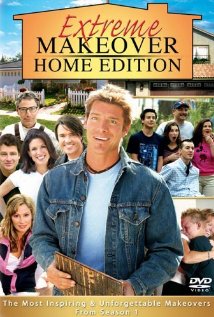Serendip is an independent site partnering with faculty at multiple colleges and universities around the world. Happy exploring!
Blogs

Thoughts on the Forum
I thought that the forum was pretty enlightening. I got the chance to be in a group with Angie Sheets, the director of Residential Life on campus, who had some very interesting ideas. She was the only non-student in the "Dorm" corner when we were asked where we felt most comfortable, and later explained that this was because the dorms are her domain, where she is the top of the chain, and where she has the most power to help students. She also brought up, in our conversation about when we felt we were in the most classed situation on campus, that she goes to the Board of Trustees meeting, and often feels out of place, especially when they are discussing what they will use our endowment toward, since she said she often feels that more of it should go into financial aid. Another interesting point that she made was that she felt in the least-classed environment during the faculty/staff kids Halloween party, where everyone is there for a common purpose, and there is not as much hyperawareness of who is in charge, has the most ownership, etc.
I thought that we could take this final idea and bring it into more events on campus, which are open to the faculty and staff, without the stress that our forum seemed to create for some people that each of us invited. I think that maybe, by not directly asking about class, but instead by sharing experiences with people from all over the campus community, we can become more exposed to their points of view.

Some Thoughts on Our Worksop
I have so many thoughts about our workshop. It's hard to find a spot to start.
I was surprised to see how many falculty members where there, and also a little saddened to see that there were not a lot of people from the support staff there. I loved that there were people who work in admin there, but would have liked to have seen some custodial or grounds staff included too.
In many ways, the absence of housekeepers and landscapers from the worksop highlighted one of the difficulties in starting a discussion of this nature on campus. No matter how hard we work to be inclusive, there may always be a barrier between those in privileged positions, and those who are in positions of support. I wonder how we can bridge that barrier.
I was very impressed with how open people were in the small breakout groups, and I always tend to like those better than big discussions anyway. I think that the biggest thing I took from my breakout groups was a sense of understanding a little better how others feel about their own class status on campus.
One of the few criticisms I have is that the workshop might have been a little too big for comfort in terms of the ammount of people there and the ability for everyone to be heard, but I think that's the sort of thing that can only become apparent through attempting to hold these events. Overall, I thought it went well as a starting point, and I am very interested in seeing where all of this will lead.

Thoughts on the Workshop
At one point during our group discussion, we were asked to identify a time in which we noticed class divides at Bryn Mawr. I decided to talk about my experience working at Wyndham: oftentimes, I have been snapped at (literally), snubbed, flat out ignored or just plain mistreated by the customers whom I am serving. I have recently begun to notice a connection between these particular patrons: they are old, wealthy (judging by clothes/conversations) upper-crust women. After telling my story, one of my group members, a McBride scholar, said very bluntly, "Well you can't change the ways of a stuck-up Main Line lady." While at the time I agreed, I couldn't help but think after: why not? The forum that we conducted demonstrated our ability to get a variety of different people together to talk about class. And in my opinion, this was a successful conversation. Although it is not really our place to try and "fix" the attitudes of classist people, it is not altogether impossible to enlighten them and bring them into a conversation. What my group member said may be true, but if we don't start from the ground up to educated people on the effects and class and the divisions that still exist, we will always be plagued by a generation of 80 year old Main Line ladies. And speaking from experience, this is not something to aim for. After witnessing the success of our smallish group discussion, I think it would be interesting to invite the community into Bryn Mawr to join us and have a conversation.

Reading Ponderings (and what makes a life worth grieving for)
In completing the readings for next class I was left with many questions. The article brought up great points about intra-action, right relationships, accountability, action, and mourning. How does it all fit in with gender and sexuality? Some connections I can see, others I am struggling more with.
From what we read of Humbach, I was somewhat puzzled by the example with Mr. Able, Baker, and Charles (11). I understand that Able represents a right relationship and that Charles is not, but how Baker is described as imitating a right relationship confuses me. Is it that he himself considered stealing the camera the problem, or would just recognizing the fact that it could be stolen be a problem? If you see a car door left open, expensive stereo equipment inside in a bad part of town and think to yourself that someone might or could steal it put you in a “wrong” relationship? I’m not sure of the line on this one…
In addition, does the fact that someone can and does “act most viciously” mean that all of their relationships are wrong relationships (13)? I don’t think so- even murderers care about friends and family, and their wrong relationships with their victims does not invalidate the right relationships that they have had in their lives. Can “seeming” even count as a right relationship? How can you tell if a relationship is right or if it only seems to be?
The Forum
I thought Friday's forum brought to light a lot of issues and solutions. When we had to describe an instance of how class mattered on campus I shared about my custom group's trip to Hope's Cookies. During customs week my customs people decided to take us to Hope's Cookie's for a fun activity. When we got there I noticied that a few people didn't get anything to eat. During the forum I realized it was wrong of our entire customs group to assume that everyone could afford to buy over priced cookies and ice cream. Therefore, it's important for class based discussions to happen within the customs group and for it to happen in HA and customs training. I'm glad for me this came to light at the forum and I was able to talk to a bunch of different people about how they saw this experience.
Workshop
After the workshop I realized that our ESem needs to be bigger. There were so many ideas and thoughts that people had that I never thought about. It seemed like the workshop gave people and opportunity to vocalize their thoughts about class if they never had the chance before. A constant theme that stood out was the idea to keep a continuing dialogue and make these issues known and take them head on. One idea that stood out to me was the idea to talk about class during Customs Week so freshman could have the opportunity to understand what they may see while here at Bryn Mawr. Initially I was all for this idea and I still believe that this is a great idea, but it may also be too much for an incoming freshman to discuss her first week here. If this idea is incorporated into Customs Week, I think it would most likely be a one way dialogue because many freshmen may find it difficult to discuss class their first week here. I know I was shy or afraid to speak up about anything my first week here, let alone class. I think a continuation of this ESem is one way to continue the dialogue. This is the first year this class was available and it had come such a long way since the first day. The workshop brought our ideas to a greater community of Bryn Mawr. In years to come, the participants of this class will hopefully bring to light the issues of class to their peers and take these issues head on as our class does.
On-campus workshop
One interesting thing I observed in our on-campus workshop is when people tried to find the solution to class issues at Bryn Mawr. Most people suggested that we should have some open talks/ platforms about class issues in class or Wellness program. Yes, it's right that we should fix the issues by confronting rather than avoiding talking about them. However, it raises the next questions for us: Should we make the talk voluntary or coercive? If it's voluntary, we still have some people attend this kind of talk. However, I guess they are all open-minded people who are willing to solve the conflicts between different classes. Class issues are created by some narrow-minded individuals who stick themselves to certain catergories and isolate themselves from the rest of the community. I believe if we talk about class issues in some coercive environments such as in the classroom in which everyone is forced to participate, it may produce better results.

The inequality map
I don't generally like David Brooks' column (he grew up one block from where I raised my children, and much of what he says bothers me, which makes me wonder what I was doing in that neighborhood for all those years....). Anyhow! take a look @ his recent spoof, "The Inequality Map." It's a pointed pointing-to what sorts of discrimination we find good (as in "discriminating") and what sorts we don't (as in "discriminating against"). Food for thought this Saturday morning.....
Class Workshop: Ownership
One question that came up that really resonated within me throughout the workshop was: do we need to feel ownership over something in order to find comfortability? To me, it was interesting that some people said that they felt comfortable in the space that is Bryn Mawr without feeling ownership. The underlying principles of ownership include having freedom within the control of over one’s environment which I had felt was necessary in order to feel in responsible for one’s actions and their consequences and find purpose from that. In this way, the outcome that would make more sense to me that others would feel more productive and comfortable in being in places where they had command. Nonetheless, in trying to relate to those who did not need ownership, I realized that one could also find greater comfort in being in a collaborative community with other people or find productivity in being guided which made me think of the collaborative nature of school and the individual agency of the student.
Up until then, I hadn’t realized that comfortability held different meanings to everyone: it made me wonder about the different comforts that each class (social economic, gender, race, ability, ethnicity, etc.) nurtures for its constituents. do some cultures and classes nurture a community based on individual autonomy or collaboration? How is each beneficial? How do these clash or work together?






